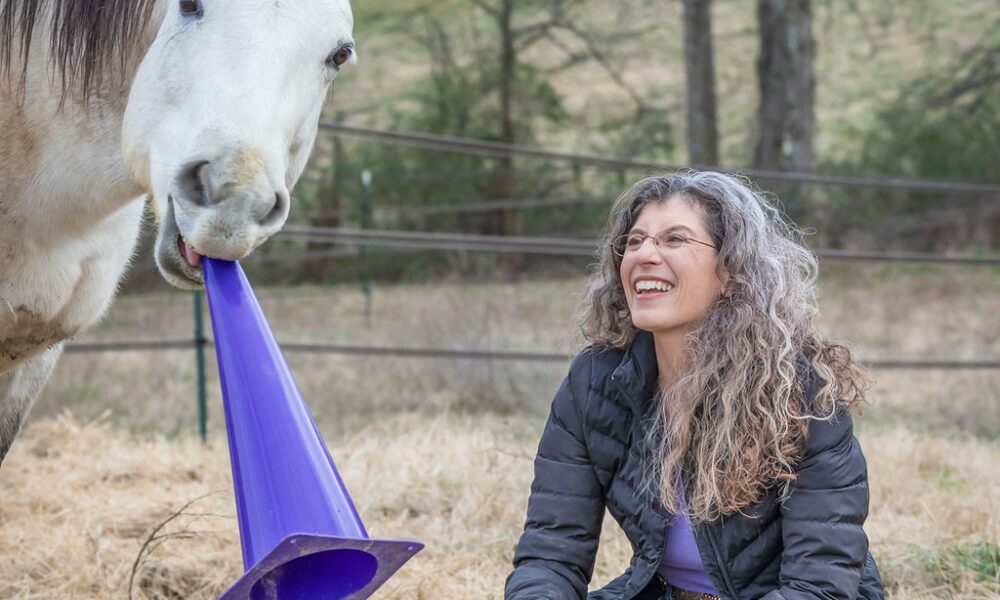

Today we’d like to introduce you to Dale Rudin.
Hi Dale, so excited to have you on the platform. So before we get into questions about your work-life, maybe you can bring our readers up to speed on your story and how you got to where you are today?
Hi Stephanie. Thanks again for the opportunity to be in your magazine.
I grew up in Southern California, and it was my dad introduced me to horses and my general love of animals. My love of horses started during my first pony ride as a three-year-old. After that experience, I was completely horse crazy. I started collecting horse figurines and making bridles and tack for them. I’m pretty sure I tried to saddle my cat at one point. Poor cat! Ha! As I got older, my dad and I would rent horses every chance we got; even travel to places that featured horseback riding. We had such a great time. It was incredible to get on such a powerful and gorgeous animal and have it carry you around! I was mesmerized by all things equine and completely hooked for life, as it turns out. My parents bought me a horse when I was 12. I spent every moment possible with that horse because I loved him so much. I also had a rough childhood and having that horse in my life saved me in more ways than I can count. I wanted to learn everything I could about how to train a horse and care for it properly. I had no idea what I was doing, but I muddled through. I learned by watching other people ride and hired a couple of different trainers to help me. However, that wasn’t a good experience for my horse or me. I showed and did pretty well competitively, but I was told to be rough and use harsh equipment to “make my horse” behave and perform.
When I saw people mistreat horses, it broke my heart. It happened a lot, and there was no reason for the suffering it caused. The trainers were the worse, and I couldn’t stand doing what they instructed me to do. The horse I had at the time was physically and emotionally harmed. He became so depressed. The light in his eyes faded. He was upset all the time, and I couldn’t stand it. So, I left the training barn and started training my horse independently. I read every book and magazine I could get hold of and vowed to teach my horse to perform by helping him understand what I wanted him to do and giving him the physical tools to do it. The results were terrific. My horse performed far better and did it happily! Every more impressive was the bond we developed. We got to a point where our communication was effortless. It seemed like we could read each other’s thoughts. Having that kind of connection with an 1100 lb. animal was terrific. People started asking me to help train their horses at some point, and I was sure thrilled to work with as many horses as possible. Each one taught me something new. I became a professional trainer. I trained and showed horses to people and gave riding lessons. I was still very traditional in my methods, using force to get the horses to do what I wanted. I was “better than most,” but I was no saint. I did things that were not in the horse’s best interest. I had been taught that horses had to be dominated to be compliant and controllable, and I believe that. So, I punished the horses for being “disrespectful” or uncooperative. I felt absolutely terrible about it. It led to heavy feelings of guilt and depression. I was trapped in a state of internal conflict. I loved horses, yet I was causing them emotional distress and pain.
I had a pivotal experience with one horse that changed everything. I had a horse in training that was hyper-reactive. My current fix at the time was to harshly punish him when he “behaved badly” by jerking on the lead rope. That had worked with horses in the past. They learn to be more afraid of the consequences of their reactive behavior than what triggered them in the first place. Well, this approach wasn’t working for this horse at all. It was making it much worse. So, I thought and realized that I was adding to his agitation. So, I decided that I should help him relax instead. I came up with a plan to do that, and it worked! It was a turning point for the horse as well as for me. After that, I pursued kinder, gentler methods, which eventually led me to where I am today – training with positive reinforcement and other forms of compassionate communication.
We all face challenges, but looking back, would you describe it as a relatively smooth road?
Oh, heck no. The road is never smooth! Ha! However, it is always exciting and has provided many opportunities to learn and be a better trainer, equine caretaker, and human. Some struggles have been in keeping the horses healthy and happy. In particular, the Haven Horses often come to us with serious issues as a result of years of being fed a poor diet, chronic stress, inadequate care, and over/miss use. It’s also a challenge to give them the care they need when they want to kill all humans because of the terrible experiences they have had with them. Things like figuring out how to house them to keep them comfortable have been difficult. We got into a really big problem with mud. Now we have no mud, but the paddocks the horses live in are more challenging than I’d like, so we will be working on resolving that soon. Being able to fund the sanctuary is an ongoing challenge. I am a stickler for giving the horses everything we need, which comes with a price. We became an official non-profit in February of ’21 and are working on promoting our work and figuring out how to do fundraising to help the horses better and give more to the horse community and anyone interested in horses. Horses are good for our hearts and souls.
Alright, so let’s switch gears a bit and talk business. What should we know?
My passion for creating a safe, supportive, and healthy environment for horses and the people who love them is at the heart of Pure Joy Horsemanship and Pure Joy Horse Haven. Pure Joy Horsemanship provides horse training and human instruction, emphasizing compassionate welfare-centered equine education and care. Pure Joy Horse Haven is a 501(c)3 equine rescue and life-long sanctuary for traumatized and abused horses. Day-to-day activities include care and training of the Haven Horses and resident horses that have joined us for training on our farm, Lyric Valley Ranch. I also travel to teach and work with horses in other locations and offer virtual consultations. I have developed an all-natural human-quality product line for horses (humans can safely use it, too!) that includes a healing hoof Mudd, toxin-free essential oil fly spray, mane and tail conditioner, and clay-based healing skin Mudd.
My specialty is rehabilitating horses with moderate to extreme emotional instability and behavioral issues (biting, kicking, fear, human avoidance, rearing, poor performance under saddle, etc.) and physical issues like chronic hoof problems, joint pain, digestive issues, muscle damage, postural imbalance, restricted movement, and gait abnormalities. These problems are almost always caused by a misunderstanding about horses’ physical needs, intelligence, and well-developed emotional capacity and sensitivity. I also love bringing along horses that have never experienced emotional or physical damage to enjoy a great happy life without pain or suffering.
My mission is to teach people how to handle, care for, and ride their horses to promote long-term comfort and health and give them a happy and high quality of life. I am the founder of Practical Positive (TM), a positive approach to daily training and horse handling. This program includes positive reinforcement to teach new behaviors and resolve unwanted. I am known for having a broad knowledge base and being well-educated in many aspects of horse care and behavior from a compassionate and scientific point of view. I am a Certified Horsemanship Association certified riding instructor who emphasizes healthy movement and development of the horse and the importance and value of having a collaborative and joyful horse-human relationship. I am also a Certified Equine Nutritionist and create customized healthy diets for all types of horses. I am a member of the Pet Professional Guild, an organization that sets guidelines for welfare and evidence-based training practices. I write feature horse training and behavior articles for Horse Illustrated magazine. I am a founding member of Force-Free Tennessee, an animal welfare advocacy organization. I am a saddle fitter and offer one-on-one support to new horse owners and experienced owners in person and at live clinics and online classes.
My goal is to be a dependable and trustworthy resource for horse owners related to their horses’ health, care, training, and well-being. I offer an alternative to the traditional approach to training, feeding, and caring for horses based on the science of learning, behavior, neurology, physiology, and biomechanics.
I am incredibly proud of our commitment to equine welfare and advocating for better horse stewardship. It’s been an exciting and fantastic journey so far that has led me down new and challenging paths. I am grateful beyond words for this experience and am thrilled to be able to share my knowledge, experience, and love of horses with others. We can enjoy our horses while ensuring they have an excellent quality of life. It’s a win for us all.
What are your plans for the future?
I’m excited about a bit-less bridle I developed. It’s ergonomic and offers a compassionate way to communicate with horses under the saddle. We’re planning to launch a Kickstarter fundraiser this summer to get it off the ground. We are working to spread the word about the sanctuary and get more people interested in what we do and advocating for better lives for all horses. As the sanctuary becomes better funded, we will offer low-cost and free education to promote the welfare and evidence-based horse training and care. Recently I developed a new product to reduce the detrimental effects of inflammation caused by mycotoxin exposure in horses. It’s working great and already helping a lot of horses. It will be available soon! I’m super excited about that. I am continuously increasing my equine behavior, nutrition, and ethology knowledge base. I am planning to apply for my animal behaviorist certification this fall. I want to get more online and live classes and clinics going and increase my virtual consulting services so I can help anyone, anywhere, anytime!
Pricing:
- Pricing is available on my website.
Contact Info:
- Website: PureJoyHorsemanship.com, PureJoyHorseHaven.org
- Instagram: https://www.instagram.com/purejoyhorsemanship/ , https://www.instagram.com/purejoyhorsehaven/
- Facebook: https://www.facebook.com/PureJoyHorsemanship, https://www.facebook.com/PureJoyHorseHavenEquineSanctuary
- Youtube: https://www.youtube.com/channel/UCS5oRdO4VUhPUsz9jbXkg3g
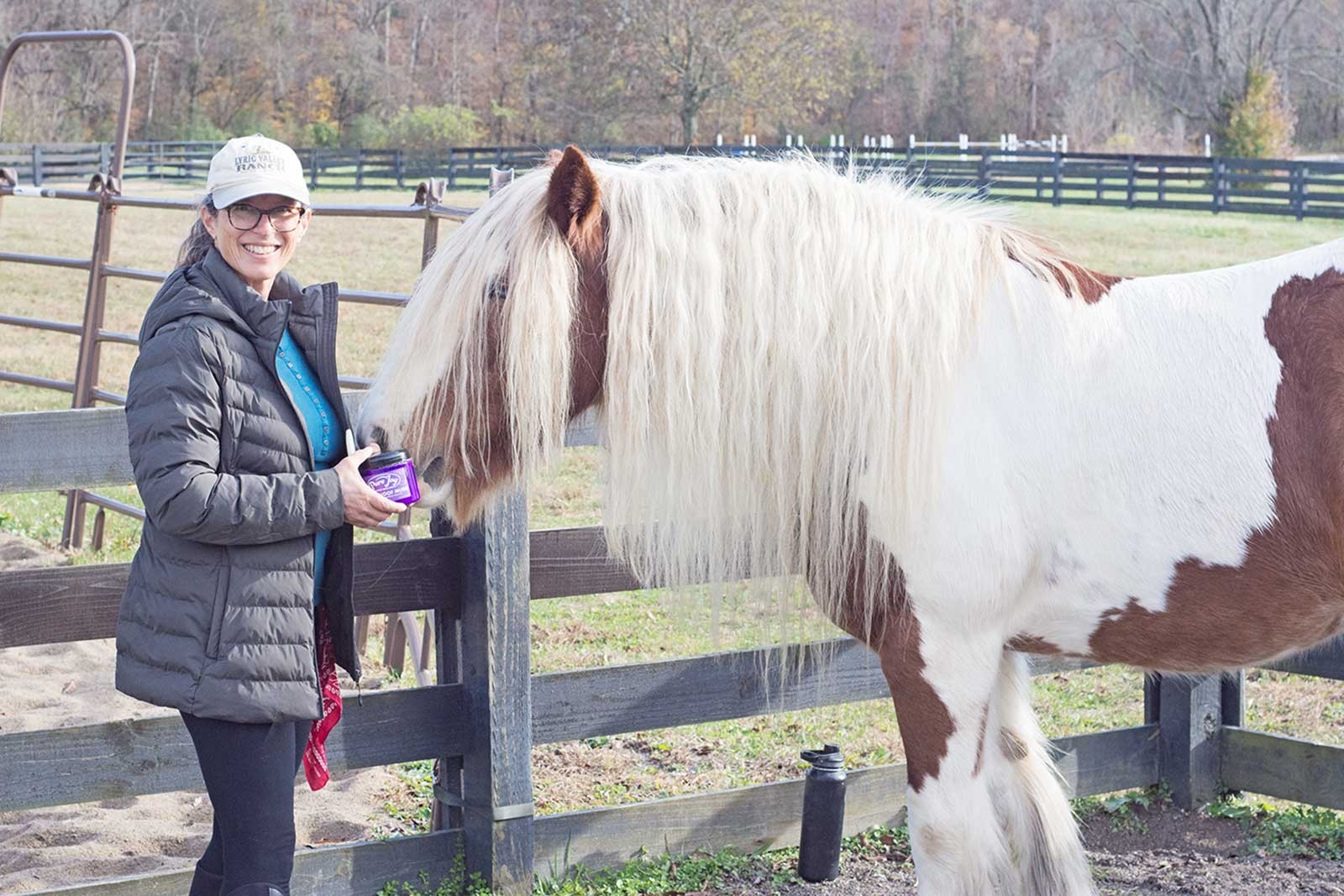
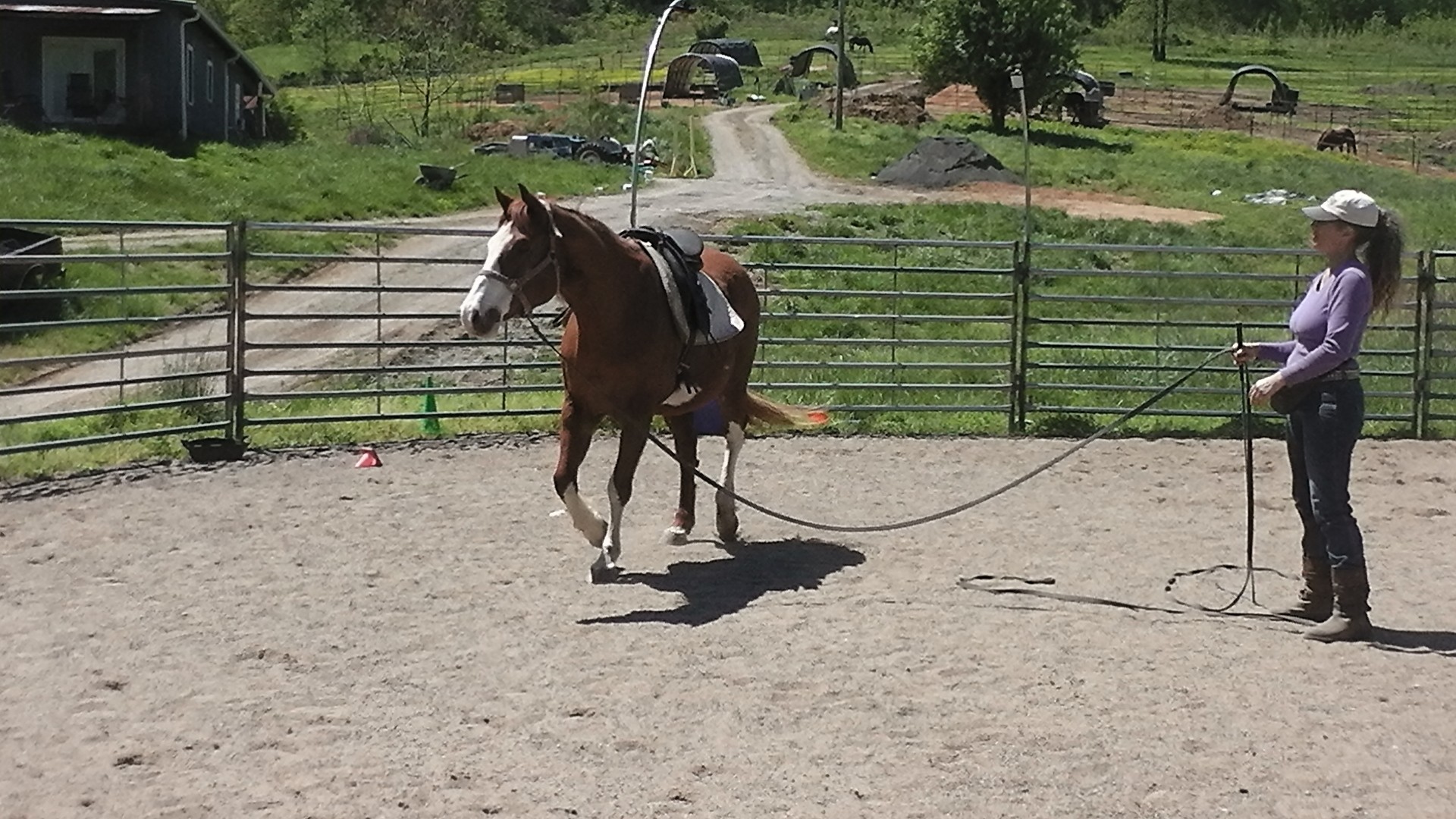
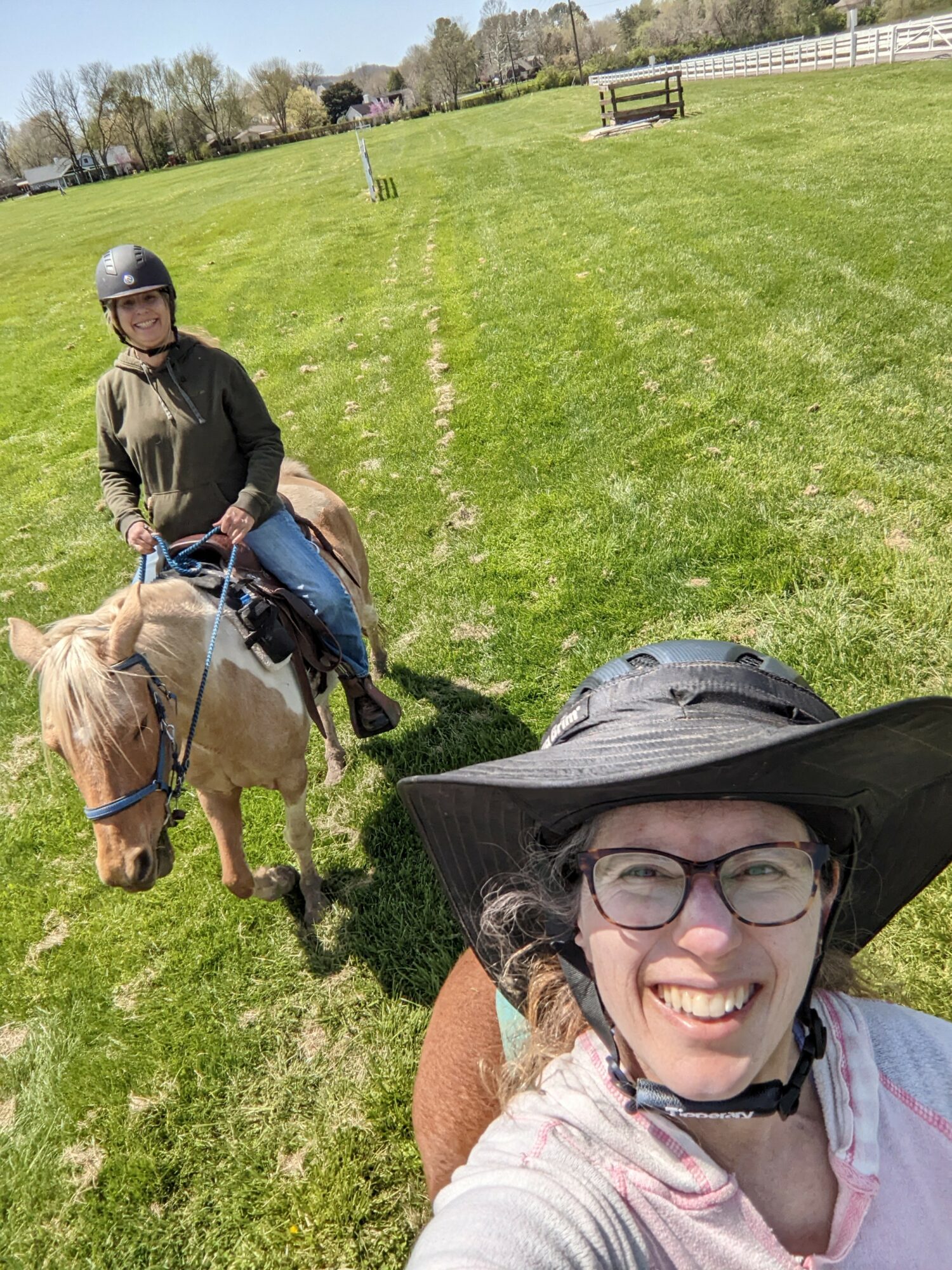
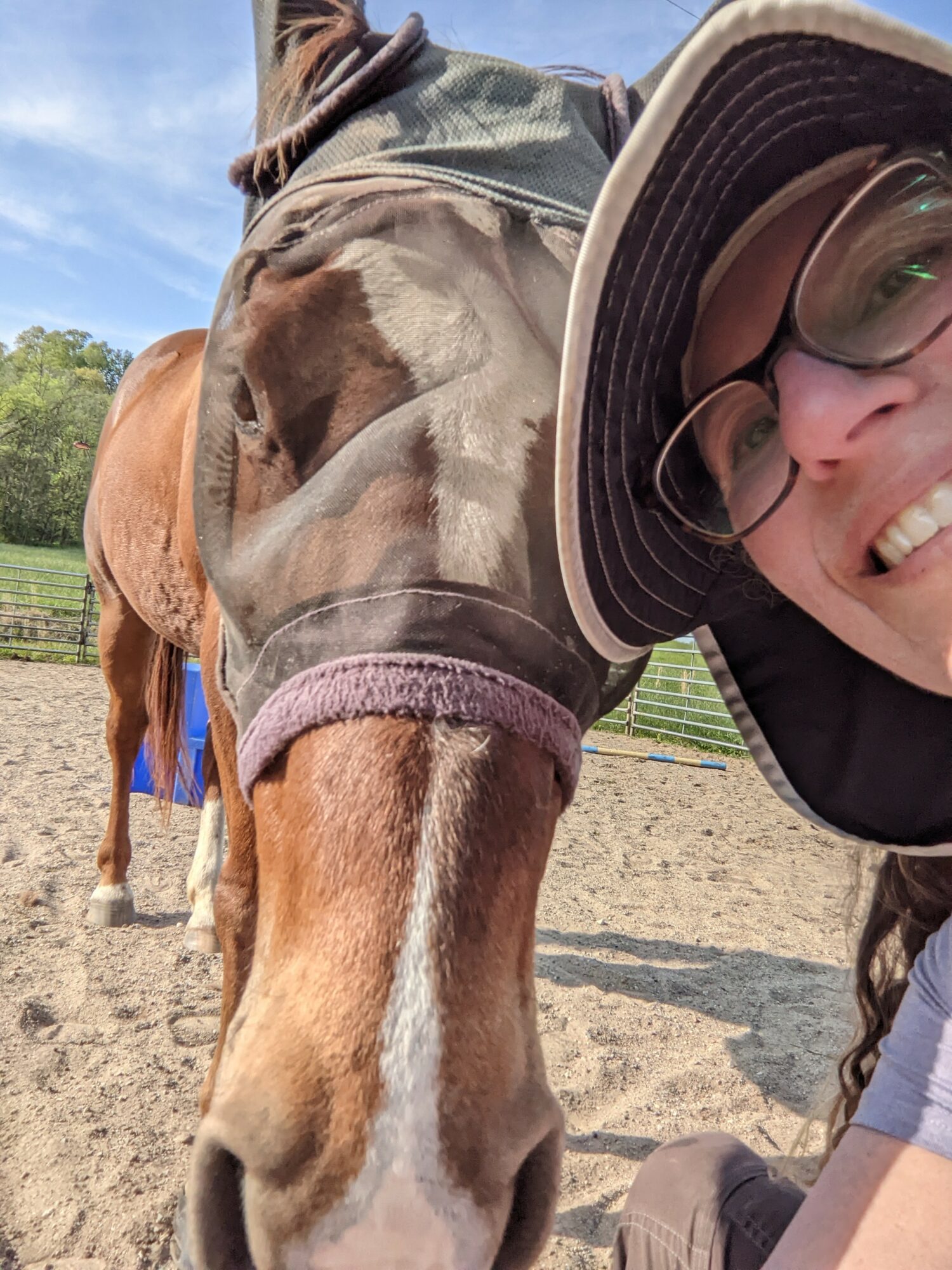
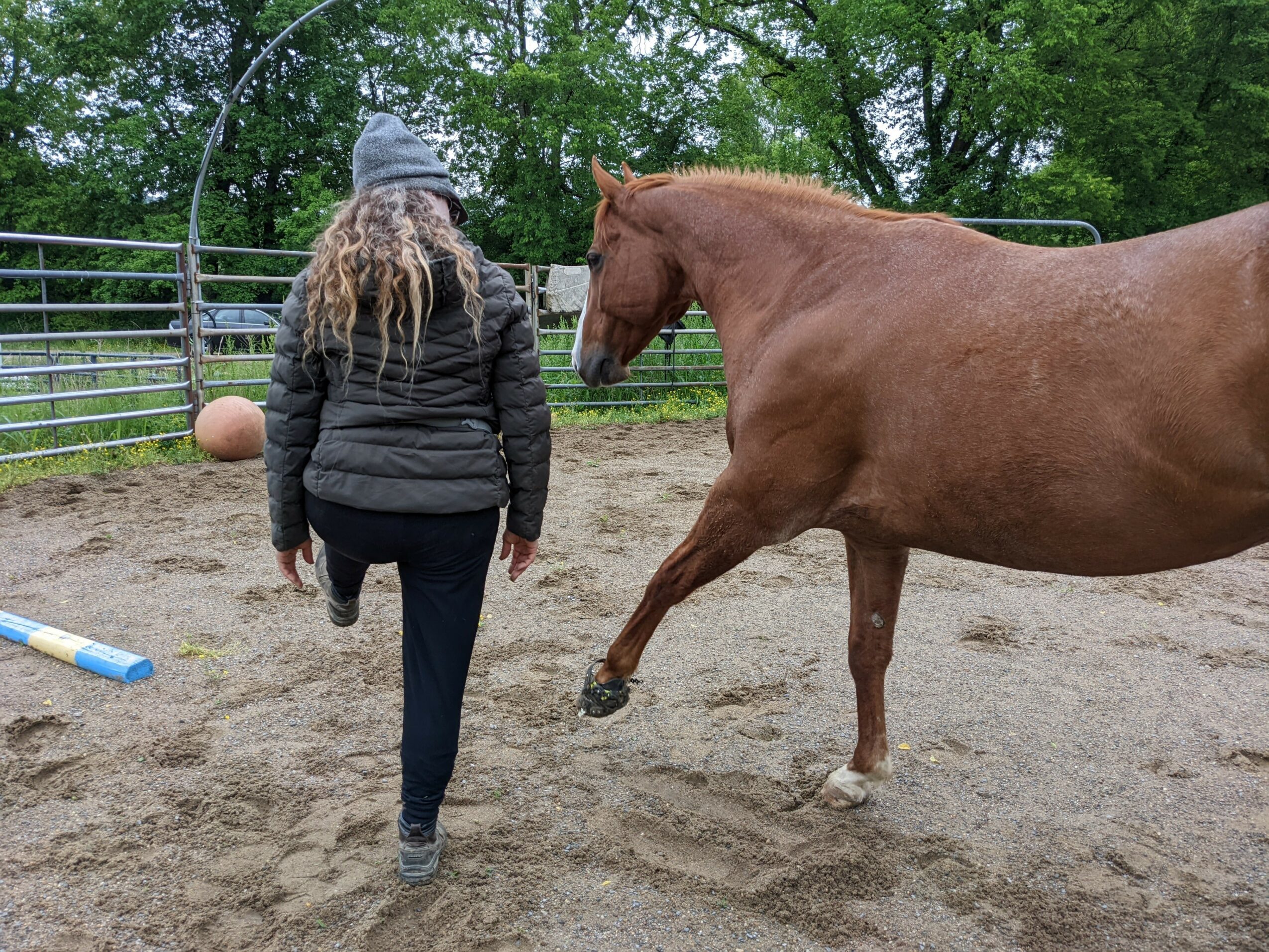
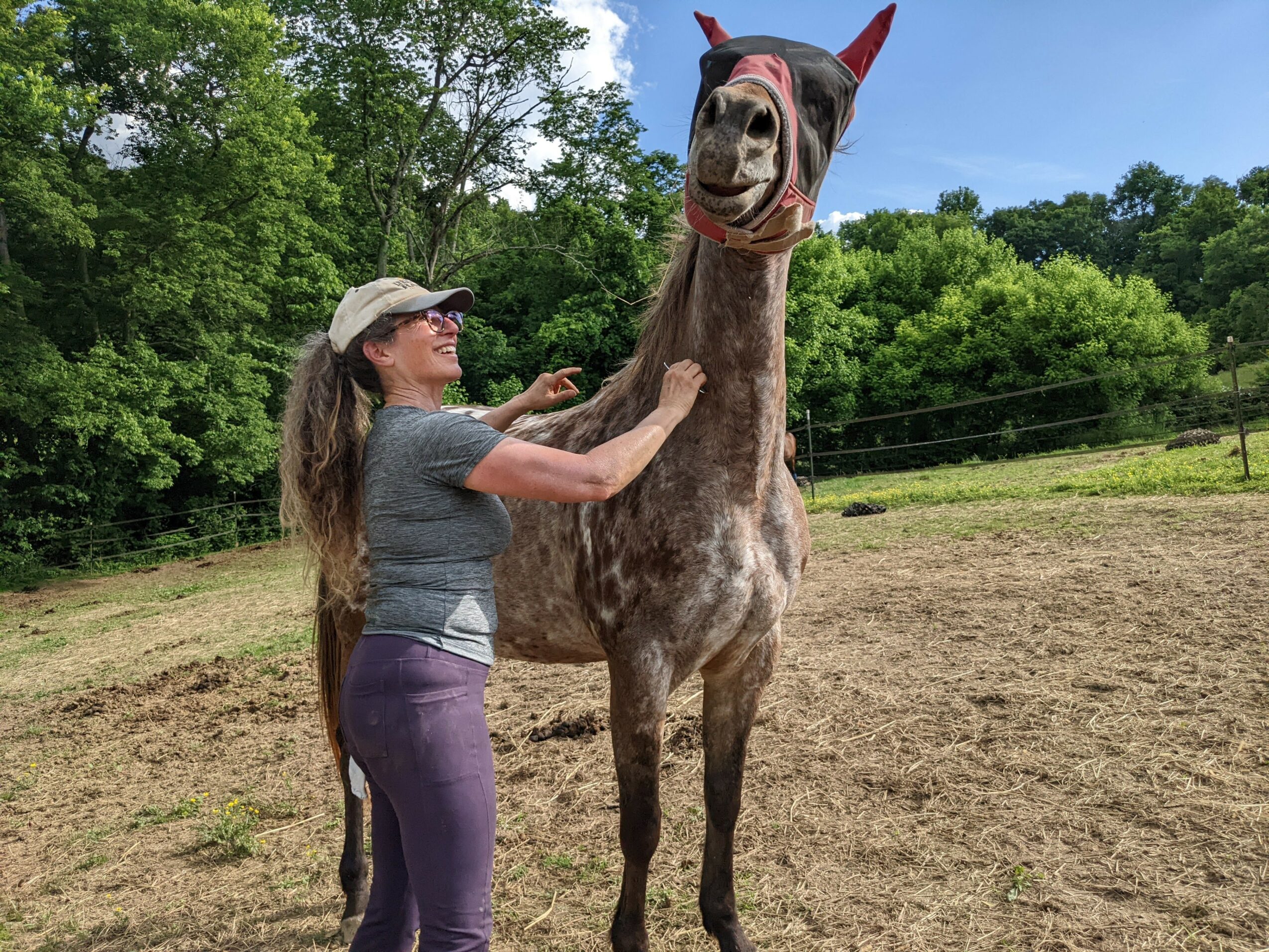
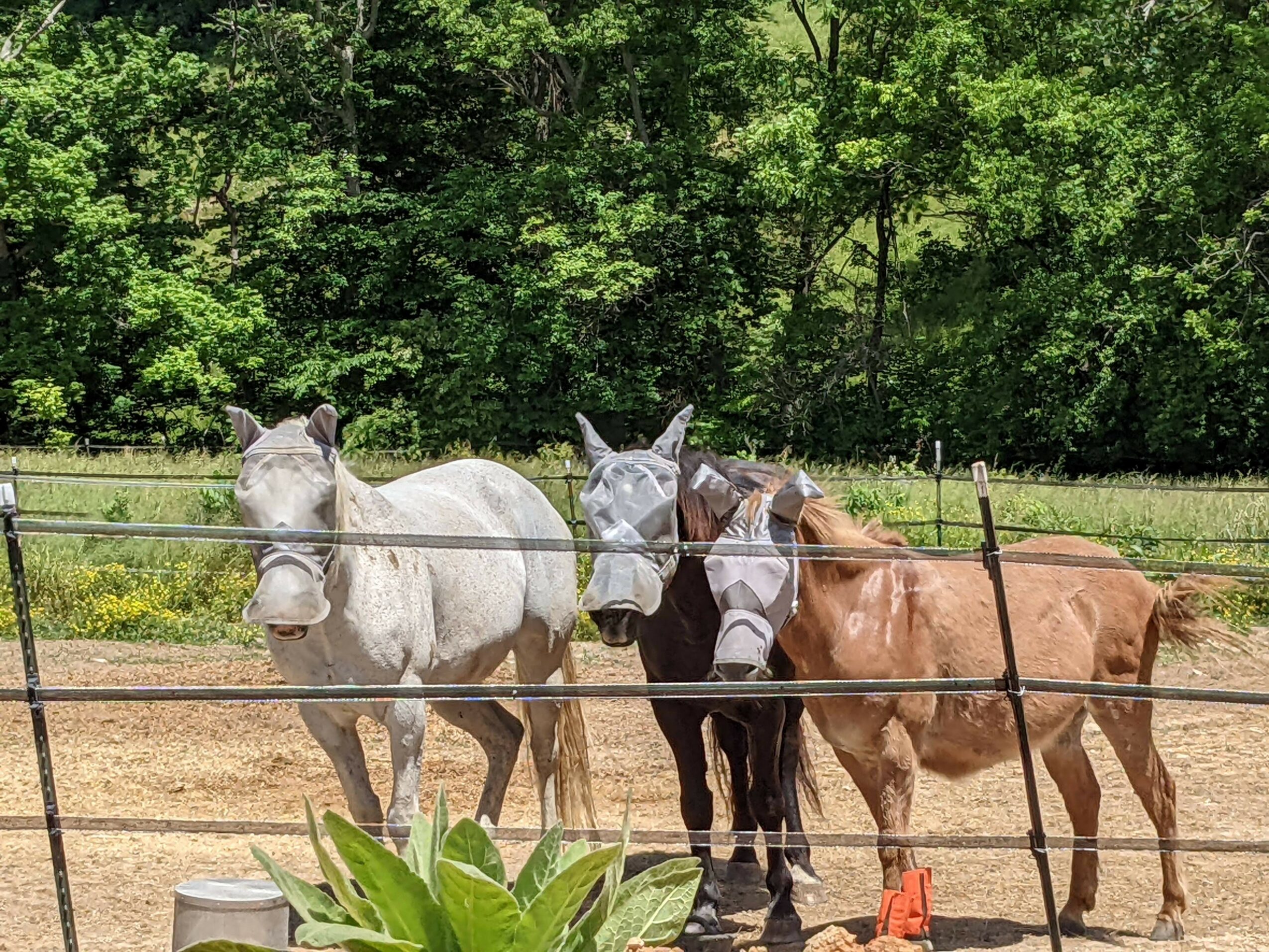
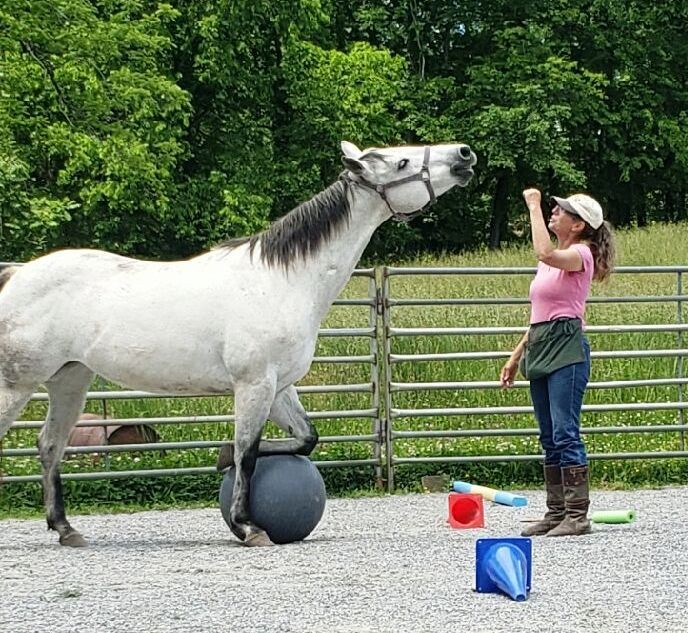
Image Credits
Catherine Shand












